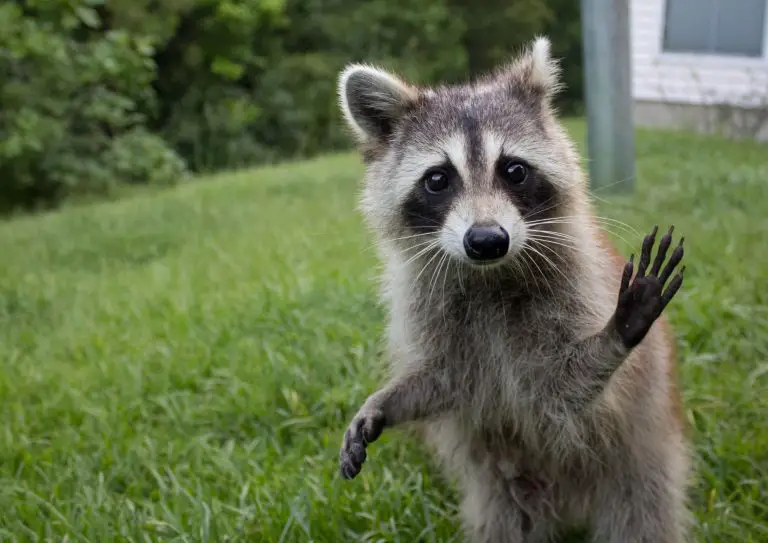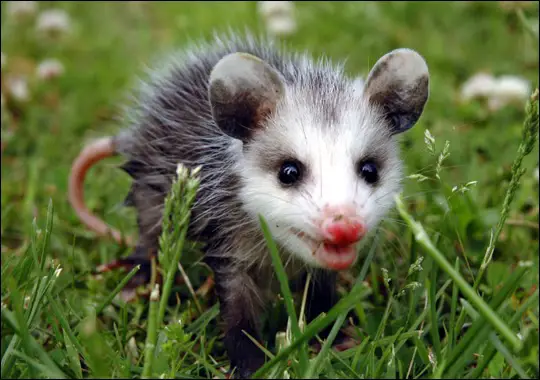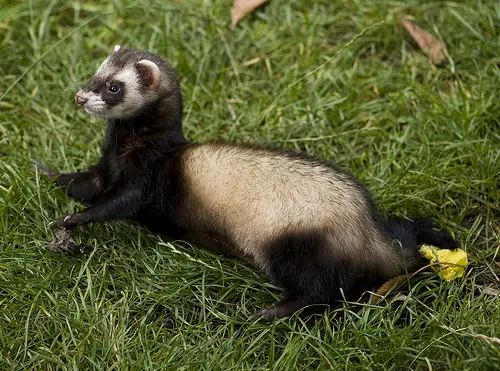Can you keep a hyena as a pet? Are hyenas dogs or cats?
Can you keep a hyena as a pet? Are hyenas dogs or cats?
Can you keep a hyena as a pet?
It has been a question for many people, but the answer to this is no. Though it is one of the most common questions asked about animals, it cannot be done because hyenas are very wild animals and domestication is just not possible.
Hyenas are indigenous to Africa and parts of Asia. Most meet them in the wild as they scavenge for food, or act like terrors on safaris.
Hyenas are distantly related to cats. They both have racket-like tails, smooth coats and their ears can be erect.
In fact, researchers have determined that the ancestors of domestic dogs and cats were probably hyena-like animals. This would make the dog and cat both direct descendants of the domestic dog’s own ancestor as well. So that raises a question as to whether their ancestors included hyenas also.
Hyenas have a bad reputation for being scavengers, but they are actually quite intelligent. They also have a great sense of smell and are very skilled hunters. Though they usually hunt in groups, their success rate is still impressive.
Although it is unlikely that a hyena would ever be kept as a pet, many zoos have managed to successfully introduce them into their exhibits.
Hyenas have to be wild, otherwise, they would not be able to survive.
Though some people have attempted to keep hyenas as pets, there are a few that are known to have done so. One of the better known is a man in South Africa named George Taylor.
In 1953, Taylor bought thirty hyenas and became quite successful with them. He went on to sell two dozen more animals and earn himself a good amount of money. Taylor even had his own television show about hyenas called “We Are the Hyenas.
However, in the early sixties, George Taylor was charged with violating the Endangered Species Act. Though at first, he won the case, it was appealed and he lost. He was fined $3000 (which he had to pay in gold) and forced to give up all his animals. At that time, there were at least 300 hyenas on his property alone.
There are also a few rumors of people keeping pet hyenas successfully, but they are simply that – rumors.
There are some hyenas in captivity that have been nicknamed ‘pets’, but they tend to be ones that have been abandoned by their mothers.
When another hyena, usually a stranger, takes in the baby and raises it as a pet, this animal tends to be very tame and friendly towards people. However, when one of these animals is taken back to the wild, they tend to revert to normal behavior very quickly.
There are good reasons for this.
The first reason is that hyenas are very territorial. They do not like strangers on their territory, so even if they were raised as a pet, it would be dangerous to release them back into the wild.
The second reason is that when a baby loses its mother, it often loses all hope in survival. Without their mother’s protection and milk, they begin to die.
However, those who have had hyenas as pets did not let this happen because they began nursing the animals themselves.
Hyenas are impressive animals, but they’re not suitable as pets. Hyenas have large teeth and jaws which can crush bone and rip through flesh.
They also have a very strong sense of smell that is used to pick up the scent of prey in order to hunt them down for food. These characteristics make hyenas too dangerous to keep as pets.
Hyena Habitat; Where do hyenas live?
Hyenas are also known as “the laughing hyena” for their characteristic cackle. They are called “laughing hyenas” but they don’t really laugh; they just make a sound that is part bark and part cackle.
There are many species of hyenas but all have a similar type of habitat. Hyena habitats can vary from desert to forest, depending on what is available for them to eat.
The size, shape, and location will also depend on where it lives. For example, some African hyenas live in forests while others live in grasslands or deserts with limited water sources.
Hyenas are members of the Canidae family, and more specifically the Hyaenidae. They inhabit a large range that extends from Africa to North America.
Hyena habitat can also be found in Europe and Central Asia; however, they have become extinct in some areas due to hunting by humans for their fur and meat.
These animals inhabit a variety of habitats, including grasslands, forests, and deserts. They can be found in Africa, the Middle East, Asia, and Eastern Europe.
What do hyenas eat?
Hyenas are scavengers, which means they’ll eat just about anything. They have been known to take down animals as large as an antelope and a lion. Hyenas can tell what they’re going to find in the area by smelling for decomposing animal carcasses, or even human corpses if there’s no other food available.
The hyenas are also a pack hunter that has been around for over two million years, making it one of the oldest and most successful canine species on earth.
They are strong hunters, using their jaws to catch prey by suffocating it or breaking its neck. Their teeth can crush bone so they don’t have to worry about chewing their food too much.
They will eat anything from insects to small mammals like rodents to larger animals such as impala and zebras!
Hyenas have a spotted coat of fur that helps them hide in tall grasses and brush from predators. They also have powerful jaws with sharp teeth to tear prey into smaller pieces for easier eating or to crush bones to get to the marrow inside.
Hyenas will eat almost any animal they can find, including insects, birds, reptiles, fish, amphibians, small mammals such as rabbits and rodents up to the size of cows and even other hyenas!
The African Wild Dog is one of its only natural enemies because it’s fast enough on land or in water where hyena cannot follow it easily.
Can you domesticate a hyena?
The striped hyena is easily tamed and can be fully trained, particularly when young. While the Ancient Egyptians did not regard striped hyenas as sacred, they allegedly tamed them for hunting purposes.
They may gradually become affectionate and as amenable as well-trained dogs if raised with a firm hand, but they emit a strong odor that no amount of washing can cover.
Despite the fact that they prey on dogs in the wild, striped hyenas raised in captivity can form bonds with them.
Are hyenas dangerous as pets? Can you keep a hyena as a pet?
The answer is no. Hyenas are not domesticated animals, and they’re not good pets for humans.
Hyenas have been known to kill people, but the likelihood of that happening while it’s in captivity is slim to none.
If you still feel like this animal would make an interesting addition to your family, you can adopt one from a zoo or rescue organization rather than trying to find one on your own.
Generally, hyenas can be dangerous. They can eat from a human-grade plate, but they still belong in the wild, not in a home. So that is why you cannot keep a hyena as a pet.
Are hyenas dogs?
A lot of people think that a hyena is just a type of dog. They look similar and both animals are scavengers. However, the similarities end there. Hyenas are wild animals while dogs are domesticated pets.
This means that they have different behaviors, habitats, and diets which make them completely different creatures in every way imaginable!
Hyenas also have some differences when it comes to their social structure-they live in large clans where females dominate males while canid packs consist of a male pack leader and many female members.
Hyenas are members of the Hyaenidae tribe, which is very distinct. The Hyaenidae family consists of four members:
The biggest and most populous species is the spotted hyena, which is known for its “laugh.” It is well known that scavengers kill more than they scavenge.
Striped hyenas are mostly scavengers.
Although they resemble dogs in appearance, they have much shorter hind legs and longer forelegs, resulting in a humped posture.
They have much, much stronger jaws that are built to crush bones, and their canines are much longer than the rest of their teeth. Their skulls are much bigger, and their necks are much shorter.
A spotted hyena can grow to be three feet tall and weigh 130 pounds, making it the size of an English Mastiff. Furthermore, unlike most dog groups, “clans” of hyenas are led by a matriarch, a female, since female hyenas are larger and heavier than males.
Finally, hyenas are descended from civets, a weasel-like animal that originated in ancient Eurasia’s jungles around 22 million years ago. Civets and hyenas are more closely related to cats than to dogs.
Are Hyenas Cats?
Are hyenas cats? This is a common question and one that is often misunderstood. A cat is simply an animal in the family Felidae with certain characteristics. Hyenas are not part of this family, they belong to the Hyaenidae family.
Hyena facts: Interesting facts about hyenas
-Their scientific name comes from Ancient Greek “hyaina” meaning “one who laughs.”
-A group of hyenas is called a cackle or clan.
-They’re mostly scavengers but sometimes they’ll also hunt for food like other carnivores do.
-The females are much larger than males which helps them protect their cubs from male invaders during mating season
“The word hyena comes from the Greek word “hyaiaina” which means “one who laughs.” The laugh is not a happy one, but rather a call or warning to other animals in the area.
This laughter has made people think that they are evil creatures and so have been persecuted by man for centuries. In reality, they are just scavengers looking for their next meal.”
Hyena size
The largest species is the spotted hyena, which can grow to be 4 to 5.9 feet (1.2 to 1.8 meters) long and 2.5 to 2.6 feet (77 to 100 centimeters) tall from paw to shoulder. They range in weight from 90 to 190 pounds (40 to 86 kg). Unlike other species, spotted females weigh 10% more than males.
The average Hyena is 38.0” (97 cm) tall, withers 29.5”-33.5” (75-85 cm) tall, and body length 47.0”-59.0” long (120-150 cm). An average Hyena weighs between 110 and 190 pounds (50 and 86 kilograms) and lives for around 25 years.



